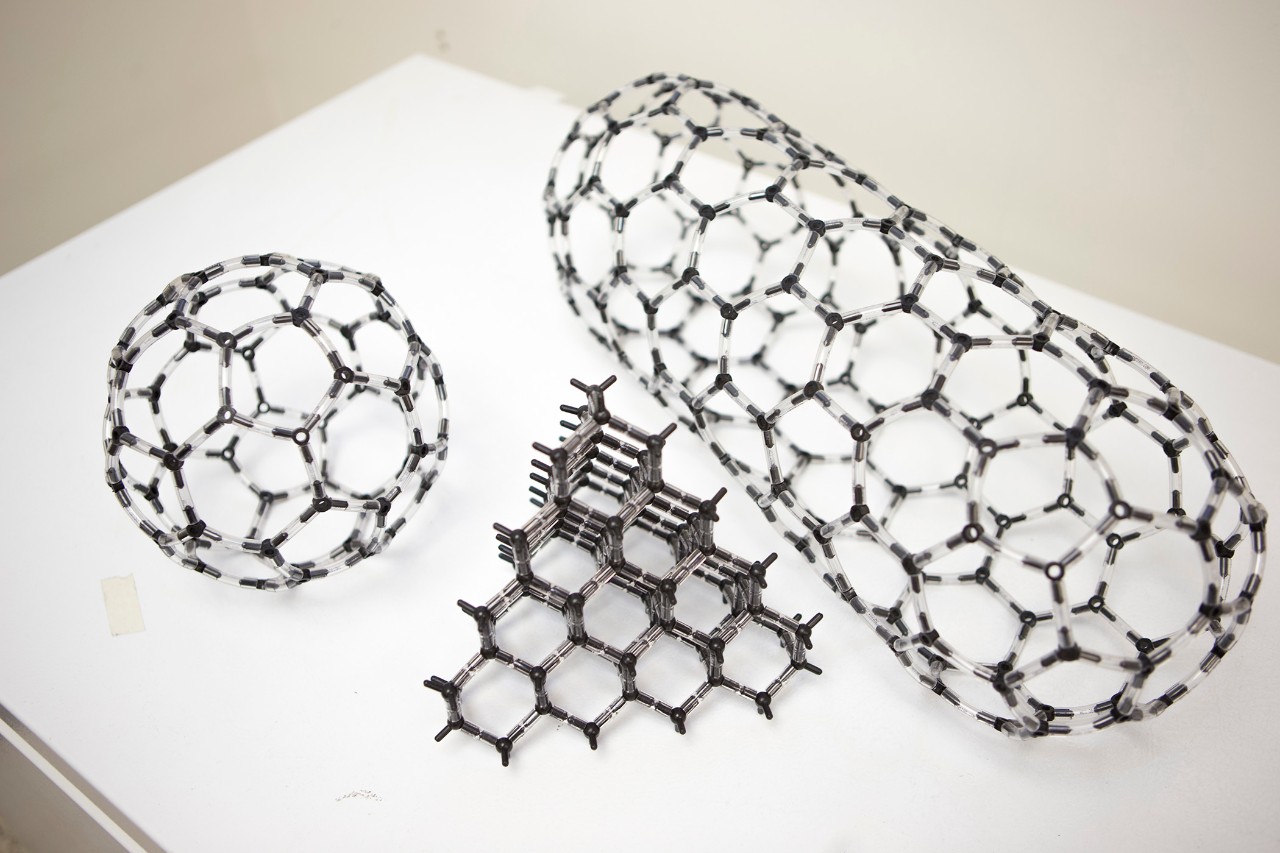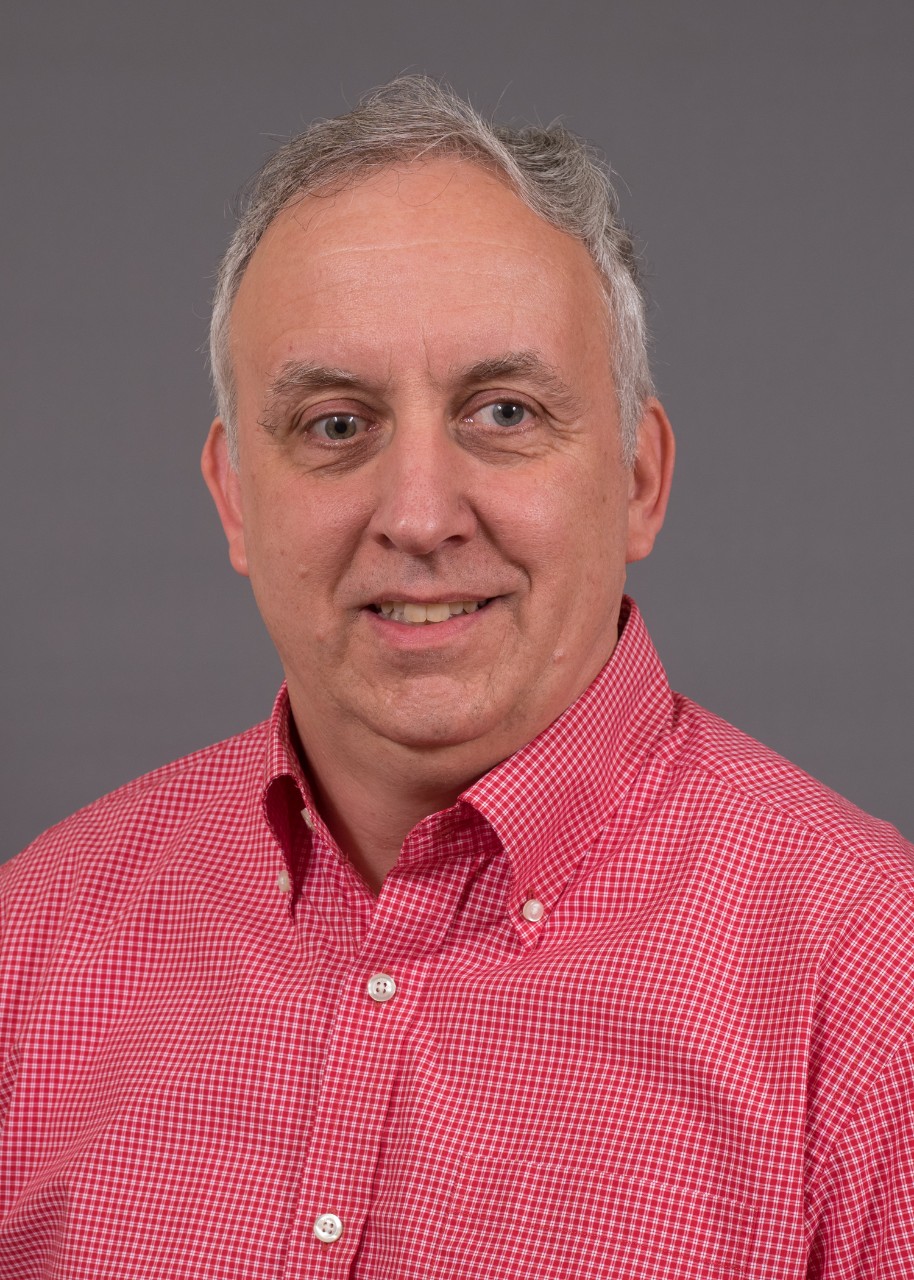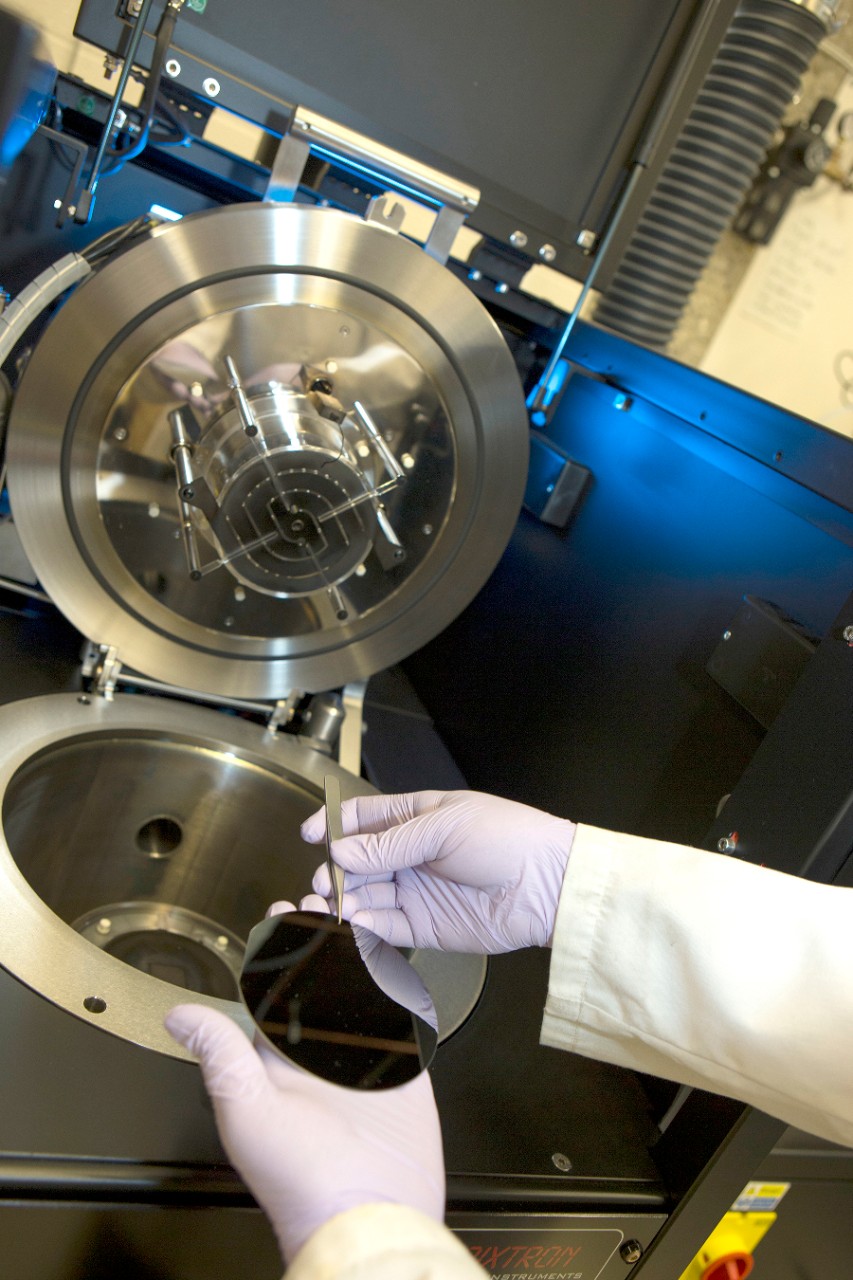
UC professor and Nanoworld co-director receives alumni award
Mark Schulz co-directs Nanoworld Labs, six labs that develop smart materials and devices based on nanotechnology

UC professor of mechanical and materials engineering Mark Schulz.
A University of Cincinnati professor was honored this month with a faculty award from his alma mater.
UC College of Engineering and Applied Science professor Mark Schulz, PhD, received the Clifford C. Furnas Memorial Award from the University at Buffalo. The annual award is presented to a distinguished graduate of the university’s School of Engineering and Applied Sciences or College of Arts and Sciences.
Schulz is a professor of mechanical and materials engineering at UC and the co-founder and co-director of Nanoworld Laboratories with UC professor of chemical and materials engineering Vesselin Shanov, PhD.
Nanoworld specializes in developing smart materials and devices based on nanotechnology. The research at Nanoworld covers a wide variety of applications, blending a number of academic disciplines. Though housed in engineering buildings, Nanoworld maintains success through this merging of academic fields.
“We collaborate with physics, and we collaborate with medicine,” says Schulz. “Dr. Shanov has a certain background, and I have a certain background – we’re a very interdisciplinary and diverse group.”
Schulz's work demonstrates UC commitment to research under its strategic plan, Next Lives Here.
Nanoworld comprises six labs and about 30 people, from students to post-doctoral fellows to faculty. The lab works on different applications in the area of nanotechnology, including biomedical and water filtration devices. Nanoworld’s hallmark product is the carbon nanotube sheet, manufactured right in the lab.
The beauty of nanomaterials is its “unique suite of properties,” says Schulz. Nanomaterials are flexible, lightweight and small. They can be used as sensors and energy-storage devices, and they can fit into the seams of fabric, something both Shanov and Schulz are utilizing in different projects.

A student works in UC's Nanoworld Labs.
One such project is a firefighter glove with a nanotube layer inside it that can resist fire and cool the firefighter’s hand. Another project involves weaving carbon nanotubes into the fibers of astronaut suits, which would eliminate the need for bulky lithium-ion batteries.
Schulz’s graduate work focused on the development and application of smart materials. When he came to UC in the early 2000s, nanotechnology was just getting off the ground. Nanoworld was a great opportunity to combine his expertise in smart materials with this new and innovative field.
“I came from the defense industry, so I wanted to try to develop things that can be useful, not just do theory,” says Schulz. That industry mindset led to two spinoff companies: a medical device start-up, Inovasc LLC, and a nanomaterials company, General Nano LLC.
Through its nearly 20 years at UC, Nanoworld has continued to drive research in the innovative field of nanomaterials forward. Its success remains rooted in its interdisciplinary approach.
“We don’t work alone,” says Schulz. “We work with everyone from the College of Medicine to the College of Arts and Sciences, and recently, the College of Design, Architecture, Art, and Planning. That diversity, collaboration and inclusion is what has brought sucess to Nanoworld.”
Featured image at top: 3D models of carbon nanotubes, one of the products of UC's Nanowold Labs.
Next Lives Here
See more news related to UC's Next Lives Here strategic direction.
Related Stories
UC professor and Nanoworld co-director receives alumni award
October 23, 2018
UC professor and Nanoworld co-director receives alumni award
Engineering professor develops on-demand drug delivery
July 28, 2021
Yoonjee Park, assistant professor of chemical engineering at University of Cincinnati's College of Engineering and Applied Science, developed a biodegradable drug delivery device that is activated by light, which would allow for on-demand dosing and fewer side effects for treatment of posterior eye diseases. With recent funding awards from the National Institute of Health and a Young Investigator Award from Ohio Lions Eye Research Foundation, Park and her research team are testing the safety and efficacy of the device. In 2019, she also participated in UC’s Venture Lab business pre-accelerator.
